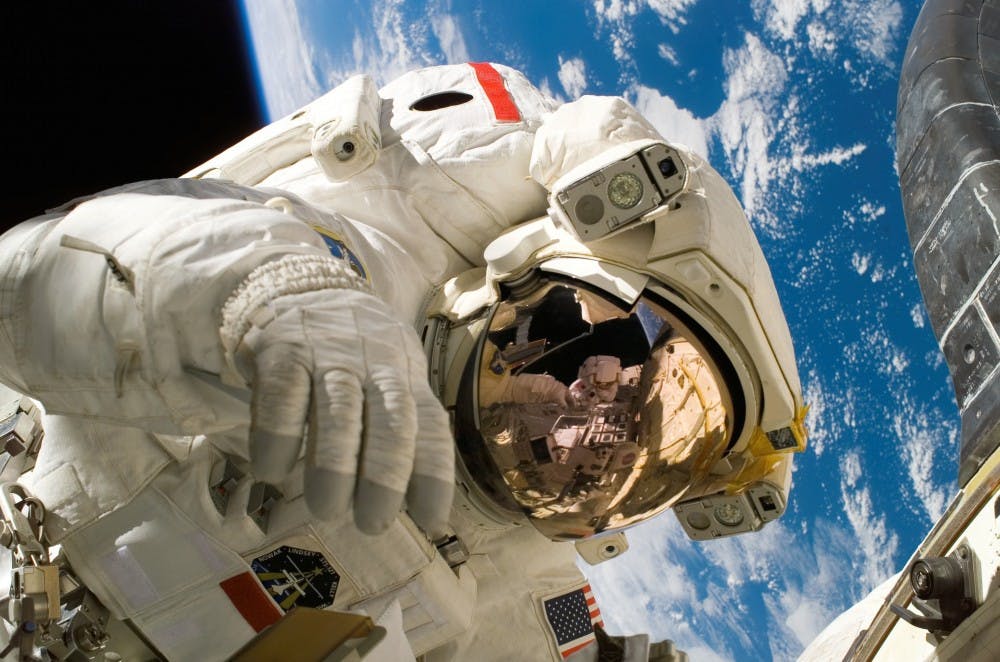A group of Penn researchers are beginning to find that our seemingly limitless expansion into space is not without its human costs.
Penn professors are working with NASA to investigate the effects that longer space missions have on the human body. Since 2011, the researchers have been developing cognitive test batteries to measure the stressors that astronauts experience in spaceflight.
While in space, astronauts have to deal with microgravity, radiation, non-24 hour light-dark cycles and chronic sleep restrictions. Oxygen levels can be too low, and the carbon dioxide levels are often too high, which can result in fatigue and a loss of bone density.
Part of the study includes using twin test subjects and comparing cognitive performances by monitoring one that stays on Earth, and another that flies out to space.
According to Mathias Basner, assistant professor of psychiatry at the Perelman School of Medicine, Penn researchers were motivated to develop these new cognitive tests because NASA’s current methods could be improved.
“The tool that is currently used by NASA is not comprehensive enough, not broad enough and also probably not sensitive enough because it's not tailored to the astronaut population to detect more subtle shifts in cognitive performance,” Basner said.
The group of Penn professors has been looking to improve upon previous research by specifically tailoring the cognitive tests for astronauts.
“We know that astronauts are a highly motivated and high-performing population,” Basner said. “Population groups, such as astronauts, are a very complex construct with many different facets, so we wanted the tests to be broad and cover as many cognitive domains as we could.”
RELATED:
Penn has used twin-design studies in the past in working with NASA
UTB: Penn's NASA ties are not limited to just outside research
The test battery examines aspects of cognition that have not been looked at before during spaceflight. Professors are looking at spatial orientation, emotional recognition and risk decision-making.
“Risk decision-making is so important for mission success but nevertheless has never been looked at,” Basner said.
Currently, their research is still in its first stages, and the group is collecting data on sleep deprivation and its connection to different spaceflight stressors. But, according to Basner, they hope to apply these cognitive tests for NASA in the future.
“In the long run, NASA could decide to put this into operation and use it very much like they use their current monitoring tool,” Basner said. “Obviously, the ultimate goal is to send people to Mars, get them back safely, while making sure that they perform optimally, because every tiny mistake in space can have severe consequences and endanger the lives of the astronauts.”









